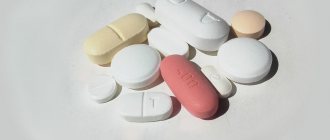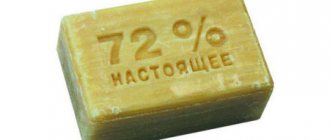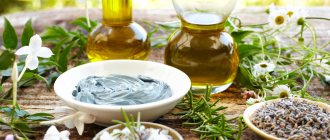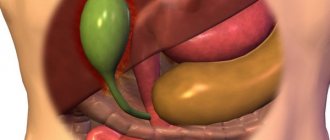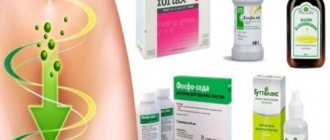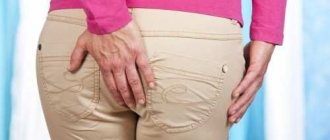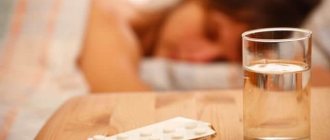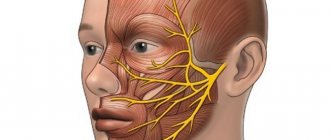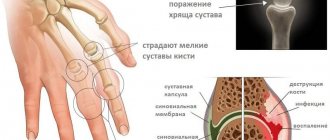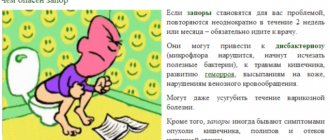Vascular diseases have become increasingly younger in recent decades. Pathologies appear in people under the age of 25-30 years. This is due to lifestyle, lack of physical activity, and nutrition. Varicose veins in the intestines cause considerable inconvenience to each owner. Constipation with hemorrhoids is a common companion. Now it’s no secret to anyone how to recognize it and what to do to eliminate it. Thanks to modern developments and research by proctologists, phlebologists and angiosurgeons, hemorrhoids can be completely cured and subsequently prevented.
What are hemorrhoids?
Intestinal hemorrhoids are called varicose, inflamed or thrombosed veins. They can be located inside the rectum, on the anal sphincter, or outside. Often people do not notice the disease at an early stage, and this is when there is a chance to eliminate it completely without resorting to surgical interventions.
Hemorrhoids inevitably cause a disruption in quality of life. A person experiences pain, itching, burning in the sphincter area. Also, in patients, the digestion process is disrupted, stool retention occurs, performance decreases, depression, isolation, and complexes occur.
Hemorrhoids and its features
Hemorrhoids are a consequence of varicose veins in the rectal area. This pathology develops in cases where the correct functioning of bleeding is disrupted: the influx of blood is several times greater than its outflow.
Under the excessive presence of blood fluid (stagnation), the venous vessels expand, swell, and hemorrhoids begin to form, which, as the development of the pathology worsens, fall out of the anus, thereby delivering many painful moments to the person.
Haemorrhoids
The prerequisites for the development of the disease are:
- Sedentary lifestyle.
- Genetic predisposition.
- Alcohol consumption.
- Pregnancy.
- Childbirth.
- Seated or standing work.
- Chronic constipation.
- Poor nutrition.
Manifested by the following symptoms:
- Pain in the anus.
- Sensation of the presence of a foreign body in the rectum.
- Itching.
- Burning.
- Constipation.
- Painful discomfort in the anus.
It has 4 stages of development, and with each new phase the course of the disease worsens. The last stage can only be cured by surgery.
Constipation with hemorrhoids
This symptom almost always accompanies intestinal varicose veins. A vicious circle arises: a person cannot empty his bowels, which contributes to compression of the veins. Dilated and inflamed vessels of the mucous membrane do not allow defecation, since hard feces damage them, causing bleeding.
Constipation with hemorrhoids can be long-term or short-term (from 2 to 10 days). If there is a prolonged absence of stool, the patient is at risk of intoxication, as waste products accumulate in the digestive tract. As a result, a person may experience additional symptoms of the disease: fever, nausea, heartburn, flatulence and abdominal pain. Constipation with hemorrhoids can be recognized by the following factors:
- no stool for 2 days or more;
- there is fermentation and pain in the abdomen, which disappears after bowel movement;
- feces are small in volume and formed in small lumps;
- after stool there is a feeling of incomplete cleansing of the intestines;
- going to the toilet causes pain, discomfort, and provokes bleeding.
For the most part, all the symptoms of constipation with hemorrhoids are the same as with other diseases. The main indicator is the absence of stool for several days.
How does constipation affect hemorrhoids?
In a state of constipation, a person experiences pressure in the abdominal cavity, which prevents the normal outflow of blood from the venous plexuses of the rectum. When you try to force a bowel movement, when straining occurs, the blood pressure increases, it accumulates excessively at the hemorrhoids and their walls protrude. The longer a person spends time on the toilet trying to have a bowel movement, the more likely they are to develop hemorrhoids.
The second danger of constipation is that when it stays in the intestines for a long time, water is almost completely absorbed from the stool. They become very dense, “sintered”.
Dry feces, passing through the intestines, mechanically injure the delicate mucous membrane
Conditions above inflamed enlarged hemorrhoids are especially favorable for this. The site of the injury begins to bleed, and an anal fissure may also form here - a very painful condition. A complication of injury to the membrane is the development of an infectious process, which can spread to the perirectal tissue, causing paraproctitis.
Why do intestinal dysfunctions occur?
As you already know, hemorrhoids begin to bleed after constipation and bowel movements. This causes additional inflammation and provokes pain. The person, in turn, tries to avoid this condition by delaying the act of defecation (provoking constipation). It’s hard to say what is the original cause and what is the effect. We can only note that constipation causes hemorrhoids, and the lack of regular bowel movements causes inflammation of the veins and their expansion. There are also other reasons for stool retention with varicose veins:
- passive lifestyle (in the absence of activity, intestinal motility decreases);
- unhealthy diet (the predominance of junk food without coarse fiber causes stagnation in the intestines);
- lack of fluid (lack of water in the body provokes the formation of dense feces);
- stress, lack of sleep, lack of time (sometimes a person does not have a free minute to fully cleanse the intestines and visit the toilet).
Constipation and hemorrhoids during pregnancy and immediately after childbirth are not uncommon for modern women. During pregnancy, the intestinal loops are compressed, causing stool retention. Constipation forces a woman to strain very hard, and this provokes hemorrhoids. What can we say about natural childbirth? In the process of pushing, many new mothers lose hemorrhoids. The condition is aggravated by stretched abdominal muscles and lack of good peristalsis.
Lactulose
Many experts agree that the best and safest remedy is lactulose-based drugs (Duphalac, Normaze, Goodluck, Portalac). The laxative effect of these drugs develops after lactulose is broken down into organic acids by the intestinal flora. They make the pH in the intestines acidic, the osmotic pressure increases and the volume of intestinal contents increases, the consistency of the stool softens. Normal stool frequency is restored.
There are many drugs containing lactulose.
In addition, lactulose is a nutrient substrate for the growth of normal microflora in the intestine. Beneficial bifidobacteria and lactobacilli help cope with intestinal infections, and also produce some enzymes that help digest food.
The effect of the drug develops within two to three days. Lactulose can be taken long-term without fear of side effects. After all, it does not irritate the intestines, does not provoke spasms, and naturally enters into the physiological process of formation and excretion of feces.
Unfortunately, lactulose cannot be taken if you have diabetes mellitus, fructose intolerance, galactose intolerance, intestinal obstruction, inflammatory diseases of the digestive tract and impaired water-salt metabolism.
Main symptoms of the disease
In the first stages, hemorrhoids may not manifest themselves at all. Some people feel mild discomfort in the anal area. Further, with greater stretching of the veins, constipation begins to bother. Stool retention complicates the disease. The patient experiences pain and itching. Bleeding that occurs after defecation can cause anemia. Pale skin, dizziness and fatigue are indirect symptoms of varicose veins.
It is impossible to detect internal nodes on your own. A person can only assume their presence. But external hemorrhoids are easy to identify. One or more blue-red balls from the veins form in the anus, which are very painful when palpated.
Description of the drug
Duphalac is a laxative that increases intestinal motility while thinning the consistency of stool. The syrup helps restore normal microflora, strengthening the immune system and protecting the intestines from pathogenic bacteria.
For the treatment of hemorrhoids, medicinal syrup is prescribed when there is difficulty in defecation and in the presence of nodes on the hemorrhoidal veins located in the rectal area. Painful cracks in the sphincter are also one of the signs when Duphalac is prescribed.
To treat or not to treat?
If you are worried about constipation due to hemorrhoids, your doctor will tell you what to do. Seeking medical help is inevitable. However, many patients delay visiting the hospital. Some are shy, others are afraid, others do not have enough time. These are all excuses. The longer you wait, the more the situation gets worse. If the first stages of intestinal varicose veins can be cured with conservative means and home procedures, then in the future you will have to resort to surgery. It would be good if these were minimally invasive interventions. But with advanced hemorrhoids, they will also be ineffective: the patient will need a full-fledged operation.
How to choose a medicine
The proctologist decides which laxative is best for each individual patient. When choosing a medicine yourself, you should consider the following points:
- You can't drink laxatives all the time. The body gets used to the effects of drugs that become ineffective over time;
- You should give preference to medications with a mild laxative effect. An effective laxative, quickly acting on the body, often provokes the occurrence of diarrhea - one of the causes of complications of hemorrhoids;
- In order not to disturb the natural intestinal microflora, it is necessary to follow a drinking regime and diet along with laxatives.
Most patients prefer medications based on natural herbs.
Probiotic medicines Linex and Bifiform
Symptomatic therapy
If you have internal hemorrhoids, constipation will inevitably bother you. When the nodes are located externally, there is no such severe discomfort and pain during bowel movements. When varicose veins are located in the intestines, friction of dense stool with inflamed vessels causes suffering. Therefore, the first thing doctors recommend is the use of symptomatic medications. To relieve constipation, you can use the following medications:
- "Duphalac" - relaxes and normalizes microflora, can be used during pregnancy and lactation;
- "Guttalax" - not suitable for long-term use, stimulates peristalsis of the large intestine;
- "Regulax" - drops that have a laxative and stool thinning effect;
- "Mukofalk" - increases the volume of feces, especially relevant for people on a diet;
- “Glycerin” - suppositories intended for emergency situations, become addictive with prolonged use.
The use of laxatives for hemorrhoids facilitates bowel movements and eliminates constipation. But these drugs have no effect on the enlarged nodes themselves, which is why the medications are called symptomatic.
conclusions
Since hemorrhoids often have a chronic course and require constant adjustment of stool, the laxative should have maximum safety. It is most rational to switch to stool-forming laxatives-fillers and refrain from chronic use of stimulants. You can take lactulose-based medications for a long time; they have a positive effect on the digestion process and the movement of feces. Among suppositories, preference should be given to glycerin ones as the safest.
Treatment of hemorrhoids is the key to success
To get rid of the disease itself, you must follow the doctor's recommendations. Diet for hemorrhoids and constipation is an integral part of treatment. In the early stages of the disease, specialists practice conservative methods. Medicines that are used to treat nodes: Venarus, Detralex, Troxevasin (ointment), Relief (suppositories) and many others. These remedies relieve inflammation, increase the tone of the veins, and improve blood circulation. If they are ineffective, then other treatment methods are used:
- sclerosis - the introduction of an adhesive substance into the node, which helps to deflate it, the vein is replaced by connective tissue;
- ligation of arteries - the vessels supplying the node are turned off;
- latex rings - put on a knot, which later dies and falls off;
- cryotherapy - freezing the formed nodes with liquid nitrogen.
Modern medicine is developing new methods for treating hemorrhoids and, as a result, eliminating constipation. They are combined and complemented. An individual regimen is selected for each patient in accordance with his state of health. Despite the fact that all manipulations vary, the diet for hemorrhoids and constipation for any patient will be the same:
- drinking plenty of water;
- eating a lot of fiber;
- preference for fresh vegetables, fruits, and foods high in protein;
- refusal of fatty, spicy and salty foods;
- complete exclusion of alcohol and carbonated drinks.
After operation
Constipation after hemorrhoid surgery is usually inevitable. After major surgery, the body needs time to recover. This period is aggravated and lengthened by the fact that the operation is performed on the intestines. Typically, after such treatment, the patient stays in the hospital for at least 5-7 days. Therefore, if you have any concerns, you can consult a doctor. After the wounds have healed, you will be prescribed conservative treatment, which will include taking laxatives and special nutrition. For hemorrhoids and constipation (after removing the nodes surgically), the stool gradually returns to normal, and the intestines get used to working correctly.
Laxative antihemorrhoidal drugs
For hemorrhoids, patients need effective therapy, and in advanced cases, surgery. The most common bothersome symptom of hemorrhoids is constipation. To eliminate pathological stools and prevent constipation, proctologists prescribe laxatives for patients with hemorrhoids.
Constipation occurs not only during exacerbation of hemorrhoidal disease, but also after surgery due to tissue injury or the use of anesthesia. A laxative for hemorrhoids should be selected by a specialized specialist based on the patient’s complaints, the characteristics of the pathological phenomenon, the state of health of the patient and his rectum.
Let's summarize
Hemorrhoids are an unpleasant intimate problem, when faced with which many people put off visiting a doctor. If you have just recently begun to experience periodic pain in the anal area, which is accompanied by a lack of stool, then adjusting your diet will help you. For hemorrhoids and constipation at a later stage, this will not be enough. Visit your doctor and learn more about your health!
Hemorrhoids are a painful and intimate disease. The last factor is the reason 80% of people get to know him. 7 out of 10 patients are embarrassed to talk about such discomfort and delayed the course of the disease until the acute phase. Delayed bowel movements aggravate the situation.
Constipation is a serious problem that requires a prompt solution. With hemorrhoids, difficult defecation becomes an additional source of pain. Dense feces injure hemorrhoids, and strong pushing creates an increase in abdominal pressure. The result is rectal bleeding.
Causes of constipation
Constipation can occur for various reasons:
- Pain – in case of pain, the patient delays defecation, as he is afraid of a repetition of the pain syndrome as during the previous bowel movement (by postponing defecation until later, the feces harden even more).
- Effect of medications - Morphine, Codeine, Oxycodone can cause hard stools. Those drugs help slow peristalsis and increase sphincter tone with inhibition of defecation reflexes.
- Inactive life.
- Consequence of surgical interventions.
- Unbalanced diet.
- Drinking small amounts of liquid.
Constipation and hemorrhoids almost always complement each other. This is due to disruption of the gastrointestinal tract. Accumulated feces negatively affect blood circulation in the rectum and anus, which leads to the development of hemorrhoidal cones and difficult removal of feces, which leads to chronic constipation.
Due to strong pushing during defecation, intraperitoneal pressure is created, which can provoke inflammation of the hemorrhoidal vein. Constipation makes it difficult to remove feces; accumulated processed foods interfere with normal venous flow in the rectum and venous plexuses of the anal area, which leads to the development of varicose veins in the anorectal area (hemorrhoids).
Help laxative effect
Laxatives for hemorrhoids are considered effective means of relieving the problem. Nuances of choice:
- Safety if long-term use is necessary.
- No addiction.
- Duration of action is up to 12 hours.
- Fewest side effects.
The laxative acts slowly, softens stool, and helps ease bowel movements. If the laxative effect is strong, this will lead to loose stools - the cause of a secondary infection.
Drug treatment is prescribed by the attending physician. It is intended for symptomatic treatment. Without eliminating the cause of constipation, hemorrhoids do not show positive dynamics. Causes:
- Lack of diet balance;
- Sedentary work;
- Insufficient fluid intake;
- Taking medications;
- Restraining urges;
- Stress, change of environment.
Drug treatment
Is it possible to take laxatives for hemorrhoids? Irritant medications are prescribed only when intestinal motility is weakened. Such medications begin to act 6 hours after administration. Osmotic medications are prescribed to retain fluid in the rectum, which helps soften and fluff up hard stool.
Probiotics are recommended to restore microflora and facilitate intestinal emptying.
The most effective medications prescribed for the treatment of hard stools.
The most effective, mild laxative, recommended for use for hemorrhoids. The main active component of glycerin suppositories is glycerin. After glycerin penetrates into the anorectal area, the substance begins to irritate rectal receptors, and hard feces soften. The drug is approved for use in forms of the pathological condition.
Among the contraindications noted: the presence of anal fissures, cancerous tumors, personal intolerance to a component of the drug composition, the patient’s body. Undesirable manifestations include inflammation in the mucous tissues of the rectum and diarrhea. Glycerin suppositories are not prohibited for women bearing children, nursing mothers and children. Despite the safe composition of the medication for constipation in hemorrhoids, its use is possible only after a medical examination, diagnosis and consultation.
A laxative medicine is recommended by proctologists if patients have hemorrhoids or anal fissures. Bisacodyl is a medicinal drug in the form of suppositories. The active substance, bisacodyl, is aimed at effectively softening hardened stool. The drug helps prevent. Undesirable absorption of salts and fluids to the intestines. At the same time, the product has a gentle effect on the intestinal walls, stimulating their peristalsis.
Contraindications for the use of the drug include: intestinal obstruction, inflammation in the abdominal cavity, problematic absorption of lactose and glucose, children under three years of age, strangulated hernia.
The drug in question belongs to the group of osmotic drugs. Forlax contains the main active component - macrogol. The product is available in powder form, so before use (internal use) it is recommended to dilute it in a glass of water.
Forlax has a mild and harmless laxative effect. Prescribed for hemorrhoidal constipation, as well as to facilitate bowel movements for patients with anal fissures and patients who have undergone surgery in the anorectal area. The duration of treatment to eliminate constipation with Forlax is 7-90 days with a dosage of one, sometimes 2 sachets per day.
The drug is prohibited for use by patients with intestinal obstruction, severe pain and lesions of the rectum. Adverse effects may include diarrhea, nausea, dermatitis, bloating, and allergies.
The drug in question belongs to the probiotic group. The medication is in the form of a suspension, which has a very gentle effect on the rectal organ. The medicinal composition is prescribed to patients with persistent constipation, anal fissures, acute and chronic hemorrhoidal pathology.
The product is also recommended for dysbacteriosis, and as an effective laxative after surgery on the rectal organ. The medication has virtually no side effects (sometimes diarrhea or an allergic reaction to the constituent substances may occur).
Slabilen contains sodium picolphate. The product is produced in the form of drops, recommended for stimulating the intestines with laxative effectiveness. The drug is recommended for use by patients with hemorrhoids, anal fissures, constipation, hemorrhoidal cones, as well as during the period before/after surgery. The drops help soften stool, speed up the movement of stool through the intestines, and facilitate easy bowel movements. Women during pregnancy and lactation are prescribed with caution.
Choice of laxatives
When choosing laxatives for hemorrhoids and fissures, the different principles of action of the drugs are taken into account. Which active ingredient will be more effective depends on the method of action on the intestines.
Based on what has been described, laxative drugs are divided into groups.
Osmotic agents
The goal is fluid retention, reducing the likelihood of dehydration. It affects the liquefaction of feces, the contents of the intestines increase, stretching the wall. Leads to reflex defecation.
Human intestinal flora
The group includes the substance Lactulose. The intestinal flora breaks it down into acids, creating an imbalance in the acid-base level of the intestines. The body increases the flow of water in this direction, dense feces increase in volume, provoking peristalsis. Emptying occurs. The only contraindication to taking Lactulose is diabetes. Suitable for use in the postoperative period.
Emollients
Help reduce pain and inflammation. They act directly in the rectum, accelerating the effect up to half an hour. Predominantly suppositories and microenemas are used. The category includes petroleum jelly. Hardened stool softens under the action of oil, facilitating passage through the intestines.
Not suitable for long-term use, use is not recommended after removal of hemorrhoids.
Drugs that increase stool volume
The basis of the preparations is bran, cellulose, and flax seeds. In the intestines, substances absorb fluid, stretching the walls and increasing volume. A reflex reaction occurs, the act of defecation.
The drugs of the group act gently, the relaxation effect occurs after 10-12 hours. Flatulence is a possible side effect. The increased load on the intestines when using drugs makes it undesirable to take after surgery for hemorrhoids.
Irritants
Frequently used and unsafe. They act on the principle of irritating colon receptors, stimulating peristalsis. Long-term use becomes addictive and leads to “lazy gut” syndrome and atony.
The group includes the drug Guttalax. The drop form makes it easy to dose. Acute diarrhea is a side effect of taking it and aggravates the course of the disease.
Products with probiotics
Mild preparations, mainly syrups and powders. They are distinguished by a laxative effect of cleansing the intestines, help restore microflora, have a beneficial effect on motility and normalize the bacterial background.
A mild form of laxative for hemorrhoids is used long-term, the result occurs on the second day after administration. The drug Duphalac belongs to this group. Effective for chronic constipation. An undeniable advantage of the drug is that it can be taken during pregnancy and after childbirth. Does not affect feeding or the health of the child.
How the intestines work
Stool forms in the large intestine, which is located at the bottom of the gastrointestinal tract. By the time digested food reaches the colon, most of the nutrients have already been absorbed.
The colon's job is to remove fluid from the intestinal contents and expel waste. She does this using rhythmic muscle contractions called peristalsis.
With such movements, feces move even lower - into the rectum, which is a temporary storage facility for waste.
As the rectal walls expand, a nerve signal is generated that stimulates the desire to defecate.
Typically, waste is produced within 35-70 hours, resulting in normal bowel movements 3-8 times per week. However, if there is a slowdown in peristalsis, then the colon absorbs water to a greater extent, and the stool becomes hard and dry, and is difficult to dislodge to the anal area.
Harm from medications
Medicines are characterized by side effects. Taking laxatives leads to unpleasant consequences:
- Diarrhea, dehydration. The use of oral rehydration agents – Regidron – will reduce the loss of electrolytes and fluids.
- Addictive effect. Caused by taking irritating drugs over a long period of time. Leads to the development of a complete stop of peristalsis - atony.
- Cramps, abdominal pain that occurs when taking “quick effect” laxatives.
Contraindications for taking laxatives for hemorrhoids:
- In the acute phase of the disease, the use of irritating drugs is excluded.
- During pregnancy and breastfeeding, taking most laxative drugs is prohibited.
- Unexplained bleeding.
Drug treatment is prescribed exclusively by a doctor.
What laxatives are available on the market?
All laxative medications of synthetic or natural origin are divided into several categories depending on the mechanism of action on the gastrointestinal tract and directly on the lower intestine.
Laxative medications.
- Irritant drugs. Medicines in this category have an irritating effect on the nerve endings in the intestinal lining, which results in increased peristalsis. The time to obtain the effect depends on the active substance and the medicinal form of the drug. For example, suppositories act faster than tablets and drops. Usually the medicine is taken before falling asleep in order to empty the intestines in the morning (Guttalax, glycerin suppositories, etc.).
- Osmotic drugs. The therapeutic effect is to retain fluid in the intestines, which allows the fecal mass to increase and soften. Osmotic laxatives act very quickly and are prescribed if it is necessary to get rid of a fecal “plug” as soon as possible (Microlax, Forlax, etc.).
- Enteric fillers. This group includes drugs of natural origin, whose ingredients are able to absorb water and increase in size. The composition of the medicines includes flaxseeds, bran, cellulose, etc. To increase the volume of the drug, you need to drink plenty of fluids during the day - at least 1.5 liters.
- Prebiotics. The composition of the medicines includes active substances that increase the osmotic pressure in the intestines and at the same time populate the gastrointestinal tract with beneficial microflora. The most effective are medications containing lactulose, for example, Duphalac, Normaze, Portalac, etc.
Thus, on the pharmaceutical market there is a variety of laxatives, which differ in the mechanism of influence on the intestines and the speed of action. In addition, laxatives are used in various dosage forms: drops, tablets, syrups and suppositories.
Folk remedies
If there are contraindications to taking laxatives for hemorrhoids, it is better to turn to traditional methods.
- Raisin decoction - drink a glass before meals.
- Gooseberry decoction - take before bed.
- Lingonberry decoction – laxative, gives a calming effect.
For constipation, increasing the amount of the right foods in your diet will help restore intestinal motility:
- Fiber-enriched foods, fruits, vegetables. Fresh carrots and beets, bran and oats are leaders in coarse fiber content.
- Dairy products. A glass of kefir will have a beneficial effect on digestion.
- Pectins. Apples, pears, seaweed. Absorb and remove toxins from the body.
Remember: only complex therapy will be effective.
Diet as a laxative
Of course, nutrition directly affects intestinal function. By properly adjusting your diet, you can count on a long-term effect and a complete solution to the problem. Despite the benefits of such “unloading” drugs, many drugs can be addictive and it may be impossible to cope naturally in the future. To prevent this from happening, it is necessary to properly organize the intake and quality of the products consumed, and use laxatives only in cases of extreme need, for example, with inflammation of hemorrhoids or prolonged constipation.
Diet rules for constipation:
- The diet should include a lot of fresh vegetables and fruits.
- It is advisable to eat flour products only from wholemeal flour.
- You need to drink at least 2 - 2.5 liters of liquid per day.
- The daily diet is divided into five to six small portions.
- It is very useful to eat porridge, especially oatmeal.
- The diet should contain enough plant fiber and less spicy and fatty foods.
During the period of exacerbation of hemorrhoids, the worst option would be to fasten the stool. Constipation is recognized as the main cause of this disease, so it is necessary to combat such phenomena very quickly.
Reviews of laxative drugs
The choice of laxatives is huge. Consumer reviews will help you make a decision.
Natalya, Chelyabinsk: The child periodically has problems going to the toilet in a big way. I'm not a fan of enemas. Lactulose has become a salvation. Thanks to its sweetish taste, the child takes it with pleasure. The effect is not quick and does not cause any alarming symptoms of diarrhea. Affordable price is an additional plus. The downside is that it is not suitable for everyone. I advised my sister - severe flatulence began, but there was no effect.
Stanislav, Moscow: My mother is elderly and often suffers from constipation. He doesn’t want to take expensive medications. Buys Vaseline oil. I was skeptical about the choice, but the product helps. I tried to explain the harm of taking oil on an empty stomach. She stands her ground, arguing that petroleum jelly does not contain additives, is natural, and is affordable. But I know that to get the long-awaited effect, she does not take a spoonful a day, and the effect does not come immediately.
Yana, Lipetsk: Constipation became an unpleasant problem during vacation. At home I try to monitor my diet - I know that constipation with hemorrhoids is unacceptable. The long flight, accommodation, and the first long-awaited days at sea distracted me from my usual routine. I remembered when the problem lasted for several days. The pharmacy recommended Guttalax drops. The sweet taste is pleasant, but the delicate problem was resolved only after a couple of days. I decided to take the drops during the holidays. I noticed that the effect was weakening, the dose was increasing. By the end of the holiday I became addicted to the drug. At home, with the help of beets, I restored the natural order of things.
Boris, Perm: I have been suffering from stomach problems for a long time - heartburn, heaviness. The doctor confirmed gastritis in addition to hemorrhoids - a faithful companion of drivers. My wife heard that flax seeds help with stomach diseases and have a mild laxative effect. I refused for a long time, but tried. Was amazed. Firstly, the taste is pleasant, somewhat reminiscent of sunflower seeds. My wife added them to salads, cottage cheese. Secondly, it has a good effect - you eat in the evening and run to the toilet in the morning.
Marina, Tula: I have never suffered from constipation problems. After the second birth, the hemorrhoids came out, and problems with “stool” began. The doctor prescribed Duphalac - it helps everyone, is gentle, and not harmful to the baby. I came to the pharmacy and was unpleasantly surprised by the cost. Not a cheap pleasure. I had to take it. The first day there was no effect, the second no change. The dose recommended by the instructions did not help, I increased it - on the third day I thought that the stitches would come apart from pushing. My friends are delighted with the syrup, but I didn’t dare drink it. I started cooking beets, and in the morning – prunes, doused with boiling water in the evening. The problem was solved, but I was done with taking laxatives.
Hemorrhoids are one of the most common diseases in the world. Millions of people suffer from it. Often a proctologist hears a request for help to cure hemorrhoids.
The disease debuts at any age, and most often occurs after reaching 30 years of age. Every second person suffered from an attack of hemorrhoids. Special proctology centers have been created, where modern methods of treating the disease are used, and recommendations for treatment are distributed. Hemorrhoids can be cured if you see a doctor on time.
In women, protrusion of hemorrhoids is provoked by late pregnancy and childbirth. There are some differences in treatment.
Reviews
Yulia: I started taking Duphalac (lactulose) during pregnancy. Thanks to this, I practically never had to deal with the problem of all pregnant women - constipation. And after giving birth, I continued to take this drug so that the symptoms of hemorrhoids would go away faster. I drank 30 ml in the morning. The syrup is sweet and pleasant to the taste. The big plus is that the stool is always “soft” and passes without problems. There is no feeling of cramping or watery diarrhea that happens when you drink, for example, Picolax or another laxative. The main thing is that it can be taken by a nursing mother, which is important for me now.
Yuri: I prefer folk remedies so that there is less chemicals. I often eat prunes, porridge, and add bran to my food. Of the pharmaceutical preparations, I am most impressed by Mucofalk. It is made from plantain seeds. Convenient to take if you don’t have herbal materials on hand. I dissolve the sachet in a glass of water and drink it at night. I make sure to drink another glass of water afterwards so that the seeds can swell. You can use it for a long time, I have not observed any side effects. I can recommend it to those who have a constant problem with hemorrhoids. Thanks to Mucofalk, the stool maintains a soft consistency and does not injure the nodes.
Anna: I have hemorrhoids, and it is often difficult to go to the toilet “in a big way.” On my mother’s advice, I took Senadexin tablets. They are based on the herb senna. I thought it was safe. The effect was simply terrible for me. It started with a burning sensation in the stomach, then cramps began. The worst thing is that the caked feces literally “fly out”, very rudely. I think it hurt everything inside me. Then there was nothing to empty with, the water just flowed, while the spasms continued. It all ended only in the afternoon. I was left feeling weak and dizzy. My anus was very painful. I realized that you can’t get rid of constipation so suddenly if you have hemorrhoids or fissures. It is necessary that the stool is always soft and regular. Now I started taking the drug Normaze. The action began on the third day. It solves my constipation problem very gently and painlessly.
General principles of treatment
In the initial stages, hemorrhoids are treated by correcting nutrition and normalizing the activity of the large intestine. Painful forms of the disease rarely require hospitalization or surgical treatment.
If hemorrhoids are external, they can be cured at home. Treatment of hemorrhoids needs to be decided with a surgeon or proctologist. Today we’ll talk about treatment using simple and effective methods.
Principles of nutrition
To get rid of hemorrhoids, it is recommended to eat right and gradually increase the number of dishes containing plant fiber in your daily diet: vegetables, fruits, cereals.
Try to drink more clean water. If constipation occurs, use mild laxatives based on dried fruits and vegetables. The carrot diet has a similar effect.
Local impact
To eliminate itching, they resort to the use of pharmaceutical ointments. The methods are used in the treatment of external hemorrhoids. With the internal form of the disease, home therapeutic measures are not enough; invasive intervention will be required. A thorough discussion of the situation with your doctor is recommended.
Conservative treatment
During an outpatient appointment, a surgeon or proctologist ties a protruding hemorrhoid with a thread. The pathological formation may gradually thin out and die. Surgical manipulations are aimed at blocking blood flow in varicose hemorrhoidal veins, which disrupts their trophism and necrosis occurs. This is how small external nodes are treated. The effect of the method is stable.
Darsonval physiotherapy is used. A special device relieves inflammation and strengthens the walls of blood vessels.
Preventive measures
The development of varicose hemorrhoidal veins can be prevented by using special fabric bandages that support the anus and prevent the development of hemorrhoids. Whether the remedy can be considered an effective treatment remains an open topic for discussion among doctors. Acts as a preventative measure.
Modern surgical techniques
The resulting hemorrhoid can be removed by laser treatment or removal using high-frequency currents. Cryodestruction or cryotherapy is often used - minimally invasive removal using liquid nitrogen. Connective tissue forms at the site of the node, and the disease is cured quickly. The procedures are called coagulation. The treatment is minimally invasive and characterized by a long-lasting effect.
Ultrasonic removal of hemorrhoids
The results were shown by ultrasound treatment. A special device is used. Ultrasound therapy is a relatively new treatment that helps get rid of unpleasant symptoms in 1 day.
Methods of surgical intervention
If conservative methods are ineffective, surgical intervention must be resorted to. Surgical treatment has found application in the development of massive bleeding from hemorrhoidal veins, severe internal forms of the disease, and the formation of a rectal fistula.
In some cases, a therapeutic effect can be achieved using combined methods - a combination of ligation with suture material and surgical removal with a scalpel.
Fixators and ligation of nodes are used when the disease reaches stage 2. The effect of hemorrhoidectomy is pronounced and long-lasting. Surgical treatment is painful and has possible complications. For elderly people and those suffering from severe chronic diseases, it is better to choose non-surgical treatment.
After surgery
Constipation is very common after hemorrhoid surgery. Constipation is treated after surgery to remove hemorrhoids according to the following scheme:
- acceleration of the recovery process of mucous tissues with their regeneration after surgical trauma;
- relieving inflammation;
- prevention of the development of a purulent process with swelling;
- preventing possible bleeding;
- preventing the accumulation of feces in the rectal organ;
- elimination of pain syndrome.
To achieve successful therapeutic efficacy, proctologists adhere to conservative treatment. Drugs are prescribed in the form of ointments, suppositories, and baths. A laxative is recommended after surgery to remove hemorrhoids, dietary nutrition, complex exercises, and therapeutic effects on the anorectal area.
Drugs prescribed during the recovery period after surgery must be on a natural basis with hemostatic, antibacterial, and anti-inflammatory effectiveness. To relieve unbearable pain, the use of analgesics is recommended, and laxatives are also prescribed after hemorrhoid surgery.
The following laxatives are prescribed:
- Duphalac - lactose included in the composition has a hypersomatic effect on feces, softening and quickly removing it from the rectum.
- Mil-steam is a preparation based on magnesium hydroxide and liquid paraffin that relieves pain and relieves constipation.
- Hay is a natural raw material for softening processed foods. Rectal suppositories
Anestezol suppositories after surgery after removal of hemorrhoids - anesthetize, weaken, heal cracks in the anal area. Anestol is considered the best remedy for restoring the pararectal area.
Treatment at home
The primary principle of home treatment for external hemorrhoids is to create comfortable conditions for the functioning of the large intestine. This includes following a special diet, performing therapeutic exercises for the perineum and rectum, and maintaining an active lifestyle. It is important to know what helps relieve an acute condition.
To treat the initial stages of the disease, use simple home remedies:
- It is not advisable to use dry toilet paper when visiting the toilet. This is a rough material for inflamed hemorrhoids. It is better to use special wet hypoallergenic wipes for treating external nodes and the anus.
- You can relieve itching in the anal area with the help of pharmaceutical ointments and folk remedies.
- Maintain good hygiene. Mucus and feces irritate the nodules, lead to inflammation, pain, and worsen the disease. Use the shower instead of paper or tissues after using the toilet.
- The condition can be alleviated by special suppositories with lipocaine, ointment with hydrocortisone, suppositories against hemorrhoids Anuzol.
- Conservative treatment is carried out, pain and swelling after hemorrhoids are reduced with the help of warm sitz baths.
- To prevent constipation, include prunes, dried apricots in your diet, and eat beets and carrots. To prevent bloating, increase your fluid intake.
- When performing hygiene procedures, avoid products containing dyes and strong fragrances.
You can relieve pain and itching from protruding hemorrhoids with the help of medications sold in pharmacies without prescriptions. Tylenol and Aspirin will help relieve pain, inflammation and swelling. You can use drugs from the category of non-steroidal anti-inflammatory drugs - Ibuprofen, Diclofenac. The ASD fraction is effective.
If there is severe itching or pain, you can apply ice cubes to the sore spot for 5-10 minutes a couple of times a day. Treats pain, swelling. Apply warm compresses to the anal area. The exposure lasts from 15 to 20 minutes.
To prevent swelling and pain from knots, sleep on your stomach with a pillow placed under your thighs. During pregnancy, this method will not help. If the patient is forced to spend a long time in a sitting position, place a soft pillow under the buttocks. When treating hemorrhoids, they undergo a thorough examination.
What to do
It is necessary to prepare in advance for surgery. Talk to a proctologist and find out what complications are possible after surgery. Psychologically tune in to a positive result.
Constipation can be prevented after surgery to remove hemorrhoids using pharmacological medications, diet, exercise and abdominal massage.
Drug treatment
Laxative suppositories, tablets and microenemas will help ease bowel movements. Glycerin suppositories irritate the intestines, stimulate peristalsis and soften dense stool.
Bisacodyl in various forms is used orally or rectally. The drug increases the secretion of mucus in the large intestine, which promotes soft and non-traumatic bowel movements.
Duphalac laxative syrup with lactulose should be taken only as prescribed by a doctor. For patients with diabetes mellitus, insulin dosage adjustment is necessary.
Regulax is a herbal preparation that does not have a negative effect on digestion.
The Microlax microenema is easy to use - the laxative in a disposable tube with the optimal dose takes effect in 5-15 minutes.
Herbal medicine for hemorrhoids
With the help of herbal teas and infusions, they relieve pain and accelerate the healing of hemorrhoids. Medicinal plants contain special anti-inflammatory and tannin substances that strengthen the walls of hemorrhoidal veins and resolve nodes. They have a hemostatic effect and accelerate complete healing.
Yarrow herb
With the help of the plant you can quickly and permanently get rid of the clinical manifestations of hemorrhoids without surgery. Yarrow tea is an effective way to treat forms of hemorrhoids.
- 2 tablespoons of raw materials are crushed and poured with a liter of boiling water.
- The infusion is set aside for 15 minutes, then filtered.
- Drink this drink throughout the day instead of tea.
- The course of treatment is at least 2 weeks.
Using lotions to treat hemorrhoids at home:
- For 100 grams of boiling water, take 100 grams of raw materials and place them in a water bath
- After bringing the mixture to a boil, leave it on low heat for 15 minutes.
- After removing from the heat, the infusion is kept for 45 minutes. Next, filter the resulting broth and add boiled water to 100 ml.
- The lotions are used for 15-20 minutes for anal fissures and bleeding nodes.
Agave
Agave or aloe relieves pain and inflammation from hemorrhoids. For treatment, take thick juicy leaves and cut them in half. It is permissible to add it to water and bring it to a boil. Then cool and use as a lotion.
Warm compresses from the resulting decoction are applied to the sore spot. In acute conditions, aloe leaves are used fresh. With the help of a home remedy, you can get rid of discomfort in the perineum forever.
Diet
The most important thing to eliminate constipation after hemorrhoid excision surgery is to follow a diet. Thanks to proper nutrition, stool comes out in a soft state, without injuring the operated area.
Patients are advised to drink plenty of fluids. You should drink at least 2.5 liters of water per day. The menu should include porridges with products of plant origin. You need to eat according to a fractional schedule (often and little by little). It is allowed to drink low-fat broths and eat soups; solid foods are completely excluded. You should also forget about fried, smoked, spicy foods.
To eliminate constipation, it is necessary to eat food prepared by steam, baked or boiled method.
Treatment methods for hemorrhoids
External forms of the disease are treated with ointments and baths. For internal inflammation, rectal suppositories and therapeutic enemas are successfully used.
Prepare a special salt bath for hemorrhoids at home. Dissolve 500 g of table salt in 3 liters of warm water and put on fire. Boil the solution and let cool. Pour warm liquid into a basin and sit until the solution cools. This way you can get rid of the initial forms of the disease and quickly eliminate the symptoms.
Bay leaves are successfully used to prepare baths.
Treatment with honey
Honey is used to treat internal and external nodes. Used in its pure form, as part of healing mixtures. Treatment regimen:
- Rectal suppositories are prepared from linden or buckwheat honey. Use at night for hemorrhoids.
- Make potato candles, smear with liquid honey to enhance the effect.
- Prepare a medicinal ointment for hemorrhoids from a spoonful of honey and cinnamon with the addition of laundry soap. The resulting ointment is used to lubricate the external nodes and anus.
Vaseline ointment
To prepare an ointment for an external type of disease, you need to mix Vaseline, lanolin and propolis in equal proportions. The ingredients are melted in a water bath and filtered through cheesecloth. The resulting mixture is spread on a cotton pad and applied to the knot. The disease is treated for a long time.
A known method of treatment is Vaseline with streptocide powder. If you don’t have other useful drugs at hand, you can temporarily relieve inflammation with Vaseline. The treatment method has no contraindications.
Treatment with soda baths
You can quickly relieve pain and get rid of it at home by dissolving 5 tablespoons of baking soda in warm water. Sit in the bath for 15 minutes. There is a positive effect within a day.
Treatment with garlic and onions
Getting rid of hemorrhoids at home using garlic is easy. Insert a peeled clove of garlic into the anus. Do not remove the clove until it comes out during a bowel movement. You can crush the garlic and mix it with butter. The home remedy permanently removes protruding external hemorrhoids, eliminates pain and inflammation without surgery.
Steam baths with warm milk are known for treatment. You will need 2 liters of milk and equal amounts of onion and garlic. Take the bath until the liquid cools down. Local treatment of hemorrhoids is effective during pregnancy. Symptoms can be reduced within a day. Lotions with brewed onion peels are considered a harmless and effective remedy.
How to use Duphalac syrup
How to use Duphalac for external hemorrhoids, its internal and combined forms? Recommendations for dosing and method of taking the syrup do not depend on the form of hemorrhoidal disease, but differ only in age restrictions.
How to use Duphalac for hemorrhoids table:
| Age (years) | Recommendations for initial daily dose (ml) | Recommendations for maintenance daily dose (ml) |
| 0–1 | ≤ 5 | ≤ 5 |
| 1–6 | 5–10 | 5–10 |
| 7–14 | 15 | 10–15 |
| 14 and older | 15–45 | 15–30 |
As a rule, the therapeutic effect from using syrup occurs within 2–3 days. After 5-7 days, the initial dose is reduced to a maintenance dose, based on the body's response to therapy.
How to drink Duphalac for hemorrhoids ? The syrup is taken in pure or diluted form, and the product can only be diluted with drinking water.
How to take Duphalac for hemorrhoids ? The daily dose, based on the patient’s age, is taken once a day or divided in equal amounts into two doses. Dispense the product using a measuring cap. It is very important to use the syrup at the same time every day, preferably during meals. During the period of using laxative syrup, it is necessary to drink a sufficient amount of liquid (1.5-2 liters of clean drinking water) in order to prevent dehydration and disturbances in the electrolyte balance of the body.
How many days should Duphalac be taken for hemorrhoids ? The duration of use of laxative syrup is not limited, since the product does not have a systemic effect on the body and is not addictive. The duration of the therapeutic course is determined by the attending physician based on the patient’s individual parameters, the severity of the disorders and the body’s response to therapy.
